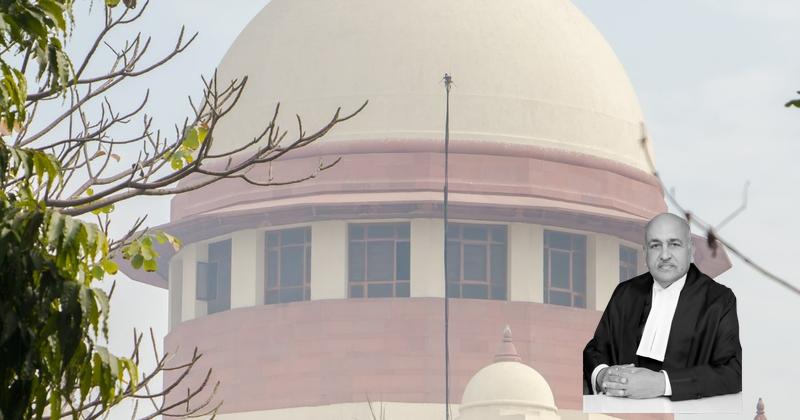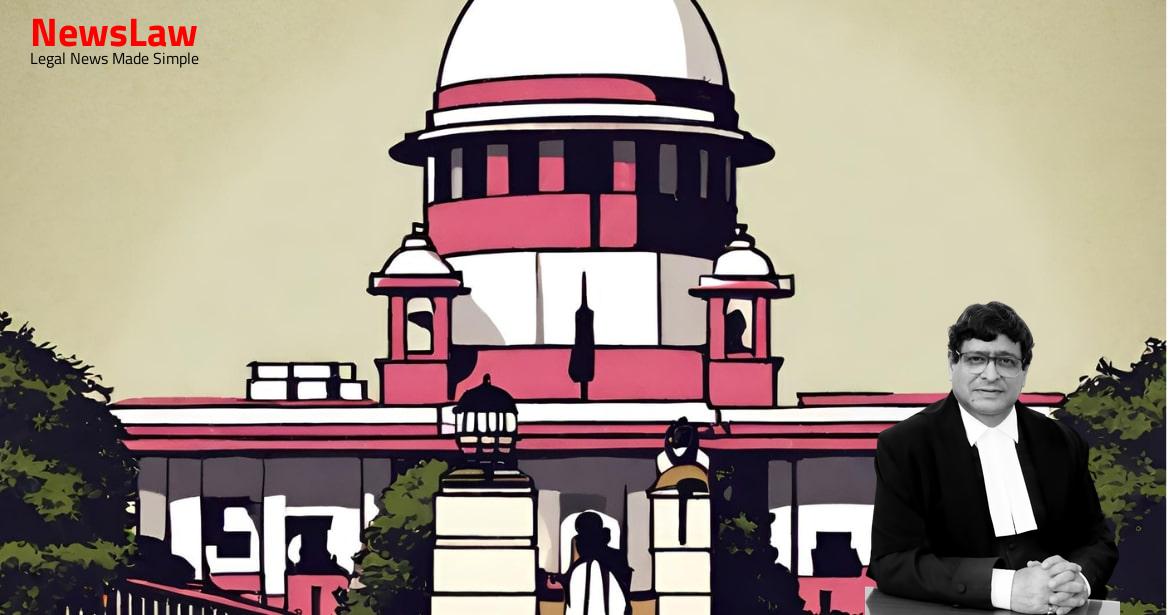Delve into the complexities of court jurisdiction and transfer in a recent legal case where multiple high courts were involved. The analysis focuses on the courts’ handling of jurisdictional disputes and the importance of judicial discipline in ensuring the orderly transfer of cases. Stay tuned to understand the legal intricacies at play in this significant case.
Facts
- The respondent was reinstated with full back wages by the Labour Court.
- The High Court of Allahabad issued a conditional interim order staying the execution of the award, requiring deposit of back wages before the Labour Court.
- The High Court dismissed a writ petition without delving into the merits, citing jurisdictional issues under the Uttar Pradesh Reorganization Act, 2000.
- The High Court of Uttarakhand also dismissed a writ petition without considering the case merits, based on the same jurisdictional grounds.
- A Single Judge of the High Court of Uttarakhand found fault in the liberty granted by the High Court of Allahabad to withdraw the writ petition with the option to file a fresh one, contrary to Section 35 of the Act.
- The appellants then filed a fresh writ petition before the High Court of Uttarakhand challenging the Labour Court’s award.
- The Allahabad High Court recognized its lack of jurisdiction and allowed the appellants to withdraw the case for transfer to the appropriate court.
- The award by the Labour Court in Dehradun, declaring the termination as illegal, was a key point discussed in the case.
- The dispute was referred to the labour court.
- The appellant complied with the same and deposited the amount of back wages.
- During the pendency of the writ petition, the State of Uttarakhand was created, and the jurisdiction of the Labour Court, Dehradun came within the jurisdiction of the State of Uttarakhand.
- Writ petition No.6898 of 1997 was not transferred to the State of Uttarakhand by the Chief Justice of the High Court of Allahabad.
- The respondent challenged his termination dated 15.06.1996 by raising an industrial dispute.
- The original petitioners (appellants) preferred Writ Petition No.6898 of 1997 before the High Court of Allahabad.
Also Read: Judicial Review of Delayed Writ Petition
Analysis
- The High Court of Allahabad did not commit any error in allowing the appellants to withdraw the writ petition and file it before the appropriate court in light of the creation of the State of Uttarakhand.
- The High Court of Uttarakhand is the appropriate court for the writ petition challenging the judgment and award of the Labour Court, Dehradun.
- The Chief Justice of the Allahabad High Court was required to transfer the pending matters to the High Court of Uttarakhand administratively.
- The delay in transferring the writ petition does not negate the need for the case to be heard by the High Court of Uttarakhand where jurisdiction now lies.
- The High Court of Allahabad was right in permitting the appellants to withdraw the writ petition and file it before the suitable court in this context.
- The judgment of the High Court of Uttarakhand dismissing the writ petition without delving into the merits is considered unsustainable.
- High Court at Allahabad loses jurisdiction in respect of transferred territory from the appointed day.
- Proceedings pending in High Court at Allahabad to be transferred to High Court of Uttaranchal if certified by Chief Justice.
- High Court at Allahabad retains jurisdiction over certain proceedings related to orders passed before the appointed day.
- Chief Justice of High Court at Allahabad can transfer proceedings to High Court of Uttaranchal if deemed necessary.
- The Single Judge of the High Court of Uttarakhand was not acting as an appellate court against the judicial order passed by the High Court of Allahabad.
- Judicial discipline and propriety demand respect for the order passed by the Coordinate Bench, particularly the order of the Allahabad High Court.
- The observations made by the High Court of Uttarakhand on the judicial order passed by the Single Judge of Allahabad High Court were unwarranted and unsustainable.
- Once the appellants were permitted by the Allahabad High Court to withdraw the writ petition with liberty to file it before the appropriate court (Uttarakhand High Court), the Single Judge of Uttarakhand was not justified in commenting on the Allahabad High Court’s order.
Also Read: Ownership Dispute: Legal Analysis on Admission and Decree
Decision
- The Registry is directed to communicate the order to the High Court of Uttarakhand immediately.
- The writ petition shall be transferred as ordered.
- No costs to be incurred.
- A request is made to the High Court to expedite the final decision on Writ Petition No.1314 of 2014 (M/S) within six months.
- The impugned judgment dated 26.11.2019 is quashed and set aside; the case is directed to be restored to the High Court of Uttarakhand.
- The present appeal is successful based on the reasons provided.
Also Read: Interpretation of Statutory Limitation under Section 263(2)
Case Title: UTTAR PRADESH JAL VIDYUT NIGAM LIMITED Vs. BALBIR SINGH (2021 INSC 473)
Case Number: C.A. No.-005667-005667 / 2021



